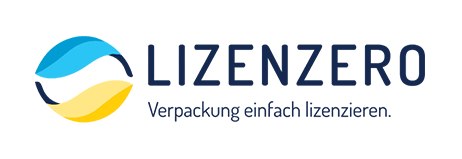How-To-Guide: System participation obligation: the most important information for dual system participation

Within the framework of the still relatively new Packaging Act, which came into force in January 2019, a whole series of new obligations have been introduced with which companies are currently confronted. Companies that hand out products to private end users and use packaging for the first time must comply with a number of regulations. These include, among other measures, the so-called System Participation Obligation. What does this mean? What do companies have to take into account in order to act in accordance with the law and fulfill the requirements? We have put together the most important information on how to participate in a dual system.
Content
- Where can the System Participation Obligation be found in the Packaging Act?
- Legal basis: the System Participation Obligation (§ 7 VerpackG)
- Instructions: How affected distributors act in compliance with the law according to VerpackG
- Exemptions from the System Participation Obligation
- Conclusion – System Participation Obligation is an essential element of the Packaging
Act The System Participation Obligation is an essential component of the new Packaging Act (VerpackG). Particularly in online trade, there has been a rapid increase in the consumption of packaging material in recent years. A large number of online retailers with their own stores ship goods of all conceivable categories in the digital mail order business. The products are usually sent to the customer's home by logistics service in an outer packaging. For consumers, the principle is convenient and simple. Companies in turn save costs for personnel and possibly also for stationary stores. The flip side: a rapidly growing mountain of waste in sales packaging, outer packaging and shipping packaging.
For this reason, the legislator has seen a need for action and has tightened the regulations for handling packaging. An important component of this is the System Participation Obligation, which is part of further obligations for companies in the B2C sector (trade with end users).
What do affected companies have to comply with and how is the System Participation Obligation to be classified in connection with the new Packaging Act (VerpackG)? We show you when you as a company must act and how you can fulfill your obligation to participate in a dual system quickly, easily and in accordance with the law.
Where can the System Participation Obligation be found in the Packaging Act?
The Packaging Act includes, in addition to many other regulations, some obligations for companies that deliver products in sales and outer packaging to end users and put them into circulation for the first time. The following are particularly relevant for the companies concerned
- the registration obligation with the Central Packaging Register Office (§9 VerpackG)
- the System Participation Obligation (§7 VerpackG)
- the data reporting obligation (§10 VerpackG)
- if applicable, the declaration of completeness (§11 VerpackG)
Probably the most important innovation of the VerpackG is the establishment of the Central Packaging Register Office (ZSVR), which as a control body monitors the implementation of the new law and can sanction defaulting companies if necessary. For affected companies, the ZSVR requires registration in the publicly accessible database LUCID (§9 VerpackG). There the supplier receives a registration number.
And this is where the System Participation Obligation (§7 VerpackG) comes into play: With the registration number from the ZSVR, companies must register with a dual system and directly license the packaging that is brought into circulation and is subject to the system participation obligation, by estimating how much packaging material they will consume in the current year. This is possible, for example, via Lizenzero for the dual system Interseroh+. During the current year, the quantities of packaging material can be specified and adjusted in the customer account.
Only at the beginning of the following year do the affected distributors have to comply with their obligation to report data (§10 VerpackG) and report the exact quantities consumed to the dual system and the Central Packaging Register Office. In rare cases, a decla-ration of completeness (§11 VerpackG) must also be submitted if several tons of packaging materials are consumed per year. Companies should carefully examine the regulations that apply specifically to their industry in each individual case.
Legal basis: the System Participation Obligation (§ 7 VerpackG)
The System Participation Obligation for initial commercial distributors of sales packaging is laid down in the Packaging Act (VerpackG) in section §7. It literally states: "Manufacturers of packaging subject to the System Participation Obligation must participate in one or more systems with this packaging in order to guarantee nationwide take-back. In doing so, they must indicate the type of material and mass of the packaging to be involved as well as the registration number according to §9 paragraph 3 sentence 2. ...]. The commercial placing on the market of packaging subject to System Participation Obligation which the manufacturer has not participated in a system is prohibited.
The law uses a few possibly ambiguous terms. For example, the "manufacturer" is the distributor or initial commercial distributor – such as the online retailer – who puts a package into circulation for the first time and sends it to private end users. The registration number is the number that an affected company receives from the Central Packaging Register. The obligation to participate in the system applies only if packaging materials are put into circulation for the first time and have not yet been licensed in advance.
Important: Companies that rely on the fact that their packaging was already licensed in advance, for example because they use used cardboard boxes, should document the licensing of the materials for each individual case in a verifiable form. Failure to do so could result in warnings and heavy fines from the ZSVR.
Instructions: How affected distributors act in compliance with the law according to VerpackG
- as initial commercial distributor of sales packaging intended for private end users, you register with the Central Packaging Register Office in the LUCID database with your company master data
- you then directly meet your System Participation Obligation by participating in a dual system – this is quick and easy via Lizenzero with the dual system Interseroh+
- during the registration you have to provide your master data and the registration number from the ZSVR
- you must also estimate the volume of packaging to be consumed in the current calendar year and license the corresponding packaging
- corrections of the volumes can be made in your customer account during the year
- at the beginning of the following year, you must then send an exact volume report to the dual system and the ZSVR – this can be done quickly and easily using the volume download for LUCID, for example, which you can find in the customer account at Lizenzero
- if the packaging volumes you consume are in the range of several tons, it may be necessary to submit an additional declaration of completeness – please check this carefully for your individual case
Exemptions from the System Participation Obligation
There are a few, rare exceptions in the Packaging Act that allow companies not to participate in a dual system. These include first and foremost the possibility for restaurants and snack bars to purchase service packaging that has already been licensed in advance.
These particularly short-lived disposable packaging for food can be purchased pre-licensed in the wholesale trade. However, companies wishing to make use of this option should also be able to document precisely that the packaging in question was already licensed.
Note: As part of the amendment to the German Packaging Act, which has been effective since 3 July 2021, the registration obligation for distributors of packaging has been extended. From 1 July 2022, the final distributors of service packaging are obliged to register with the Central Packaging Register in LUCID, even when the service packaging had already been licensed by the previous distributor.
Another exception can be dropshipping or a form of distribution such as fulfillment at Amazon. However, the exemption from the system participation obligation only exists if the partner, such as the mail-order company Amazon, packs the goods in a shipping carton. If this has already been done by you as a distributor, you are again obliged to participate in the system.
Watch out: Also fulfilment service providers are affected by the changes of the German Packaging Act Amendment. From 1 July 2022, fulfilment service providers will no longer be responsible for the licensing of shipping packaging. Instead, after the one-year transition period, the system participation obligation will always apply to the commissioning retailers. For more information, see "Amendment of the German Packaging Act: regulations tightened for online marketplaces".
In the case of dropshipping, the external third party who ships the goods is always obliged to participate in the system. However, if the original seller can be identified on the shipping carton, he himself is obliged to register and participate in the System Participation Obligation. Companies should proceed very cautiously and check carefully whether they are obliged or not.
Conclusion – System Participation Obligation is an essential element of the Packaging Act
The System Participation Obligation is by no means new and was not only introduced with the Packaging Act 2019. It already existed in the previous Packaging Ordinance (VerpackV) in §6, VerpackV. However, many affected companies had not adhered to the regulations and had difficulty in obtaining sanctions. What is new, therefore, is the emphasis placed on the obligation to participate in a dual system. The new legal situation has made it much easier to sanction market participants. Competitors and private individuals can check quickly and easily in the publicly accessible database LUCID whether a competitor is complying with the new VerpackG – and if necessary send a warning to defaulting companies.
Finally, the aim of the System Participation Obligation and the associated licensing of packaging materials is to secure the financial basis for the recycling economy in Germany and to enable those who generate packaging waste to efficiently share in the costs. Thus, the System Participation Obligation in a dual system contributes to more fairness in waste disposal and recycling in Germany. This is because the dual systems enable packaging to be taken back throughout the country by providing disposal containers close to households. This is a major cost factor in which those who produce the waste must participate. The System Participation Obligation makes a significant contribution to this. This is not only necessary to ensure the functioning of the dual systems, but also in the interests of environmental protection and consumers.



